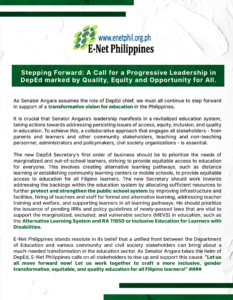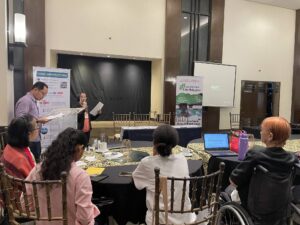
Blog

Continuity of Education and Learning Opportunities in the New Normal
Aside from its devastating impact on the economy and people’s livelihoods, the rapid spread of COVID-19 has brought enormous consequences on education too. Schools in basic education were forced to close in early March just before the 4th grading exam periods. Major universities in the NCR suspended and later on ended classes within 3 weeks of the end of the 2 nd semester or moving towards midterm for those which opened in June-July. To limit the disruption of education, schools and higher education institutions (HEIs) adopted ‘home-schooling situations’ and some, a shift to online learning. But while online learning seems to be convenient at a time
when face-to-face interaction is highly discouraged, even DepEd Sec. Leonor Briones expressed concern that “this will only be effective when feasible” citing lack of infrastructure and internet access in many areas.
This situation gives us a glimpse of how continuity of education and learning will be more challenging for learners, teachers and schools when schools start to open again. While education agencies and schools have plans for emergency management for natural disasters, COVID19 impact may well be one of the longest sustained disruptions the education sector will face. Taking into consideration the existing education gaps especially in terms of access, equity and resources, we may have arrived at this point unprepared.
Without a vaccine still, risk of a resurgence of the disease will continue. Despite this, learning cannot stop. Containment and other mitigation measures like “social distancing” will still be in place in schools, in workplaces, in communities. This will be the “new normal”. The education system will have to be prepared and ready (though in a short period) to plan, adapt and flexibly adjust plans to keep education running in this “new normal” situation. Innovations will be much needed while ensuring that these new shifts and approaches will not widen existing equity gaps.
Looking at how best to provide continuity of education in times such as these, it’s important to take the views of different stakeholders for answers, examples and inspiration. This webinar provides a venue for our education agencies to share their educational response and adaptive plans amid COVID-19 or in the “new normal” and for other stakeholders to share on lessons and effectiveness (based on experiences and practices) of different approaches and alternative modes in education delivery which education agencies can adopt as solutions.



